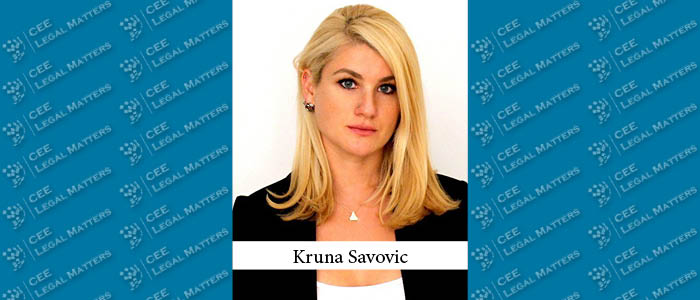"We’ve been living through crisis days since the first wave of sanctions in 2014,” says Alexei Roudiak, the Managing Partner of Herbert Smith Freehills in Russia, "but looking back 12-18 months or even 12-24 months, things started to pick up, and we’ve noticed a greater amount of activity across the board, but primarily in the energy sector.” Not only energy (primarily hydrocarbons and hard rock mining), he says after reflecting, "but also pharma, retail, financial institutions, litigation (both domestic and cross-border) … we have been busy across all areas for the last 18 months.”
He hesitates when it’s suggested that it sounds like things are going very well. "Being busy and things going very well are two different things,” he notes after pausing. "It’s not correct to say things are going really well. Saying that would be a bit of a stretch. It’s become more difficult to make money in a depressed market like this, where there's pressure on fees, higher competition for a smaller amount of work, and so on.” So why is there’s a greater level of activity than one would expect? "First of all,” he says, "nobody knows what to expect in a situation like this, with Western sanctions, depressed oil prices, and so on. And indeed, there was a slowdown in activity at first … but people got used to it. And the sanctions are only affecting particular sectors and areas, but there’s a great deal of activity in other areas and sectors – once valuations in non-affected sectors got adjusted downwards (which they did over the last three years), people started pricing all sorts of risks in and that creates greater levels of activity. There is always appetite for Russian assets if the price is right” In addition, he suggests, “people also develop a kind of resilience to changing circumstances. The market adapts, people adapt.” Finally, he says, "as an example of a somewhat unexpected outcome, the counter-sanctions which ban the import of agricultural products from the EU, boosted the domestic agri-sector.” Taken together, he says, “although the growth is not as steep as before, it’s still there.”
In addition, Roudiak points out, much of the investment previously coming from the West is now coming from other sources. “There’s been a tangible, really visible swap, in the foreign investor base,” he says. "After the introduction of sanctions the Western funding pipeline effectively dried up — there was a period where you wouldn’t see any Western money coming into the country." This is still more or less true, he says, "which is not great for Western and American companies that are missing opportunities — but this vacuum is being filled in by Japanese and other Asian investors in various industries and sectors.” And in terms of a new inflow of foreign capital there’s generally been a tangible shift to the East. And we’ve started doing more work for Asian companies: our offices in Asia helped immediately. We had always been doing a lot of work for our Asian clients but with Western sanctions we doubled — if not tripled — our efforts to drum up more business from Asia.”
Still, the sanctions and economic problems undeniably had an effect on law firm business in the country. “It effected everyone,” Roudiak concedes. “And most international firms downsized” — especially the smaller international firms which focused on one or two primary practices; those “putting all their eggs in one basket,” as he puts it "or those who did not have time to develop into a more diversified fully-fledged business." His office, Roudiak says, chose a different path. "I’ve always thought that the key of success of an ILF in a national market is to build up a solid local client base, so we’ve always placed our bets on the quality of Russian clientele, so that helped. We've held on to our best Russian clients — Western clients with established business operations in Russia did not pack their bags and leave; new investors didn’t come in, but the established investors stayed."
Turning to a rosier subject, Roudiak commented to the ongoing reform of Russia's commercial legislation and the overhaul of the Russian Civil Code which started about six or seven years ago. In his opinion, these reforms "make the country more business friendly and introduce more tools and instruments to promote Russian law.” The biggest M&A deals are still structured under English law, he says, “which is one of the reasons why our firm maintains fully-fledged English law capabilities here on the ground,” but the reforms “are a sign of Russia’s ambitions to promote its own code and legislation.” The Herbert Smith Freehills Managing Partner isn’t naive about the process. “It’s not going to happen overnight,” he concedes, “and it’s going to be a long and sometimes bumpy road. But the general trend is there, and we’re seeing more and more deals with a greater number of documents governed by Russian law.” He says, "we welcome this — this is a great thing to see. I’m a Russian lawyer, and I‘ve been doing deals under English law as long as I’ve been practicing, but a country like mine deserves a well-developed functioning commercial legislation.”
The European Union, where the GDPR will be implemented in spring of 2018, is not alone in its concern for data privacy, Roudiak says. "Data protection is a big topic here too, and there’s been a major overhaul of data protection regulation, with more strict requirements." LinkedIn, for instance, was famously banned in the country after it failed to base its servers in Russia to maintain the data of Russian users. Roudiak pauses to try the LinkedIn app on his phone before reporting that it still doesn’t work. "So I guess they still haven’t sorted it out,” he says. "I haven’t heard of any other prominent examples like LinkedIn right now, but there are articles or posts on social networks on an almost daily basis about how Facebook is going to be shut down, or twitter, but fortunately that has not happened yet.” Still, he points out, "that sort of theme or topic is always in the air in Russian media."
Finally, Roudiak is asked what new legislation is on the horizon. "Things often come unexpectedly from our legislator,” he says, “so it can be difficult to predict. But as a general observation — and this is not unique to Russia — people are becoming more protectionist when it comes to foreign ownership of strategic interests in the country.” As a result, he says, "Russia began introducing legislation on this point seven or eight years ago to require special approval from a commission headed by the Prime Minister for deals involving such investments, and there have been recent amendments to this, tightening, closing loopholes, etc. It’s only natural of the government to keep an eye on this.”
Another important initiative that is underway, he says, is a major overhaul of the regulations and qualification requirements for the legal profession that will affect the entire industry. And while most of the long-awaited changes are aimed at better regulating professional conduct and the way lawyers conduct their business, some of them, “driven by a narrow-sighted protectionist sentiment, are aimed at banning international law firms from the market.” Roudiak expresses his displeasure: “This is not a model that I would want my country to follow.”






























